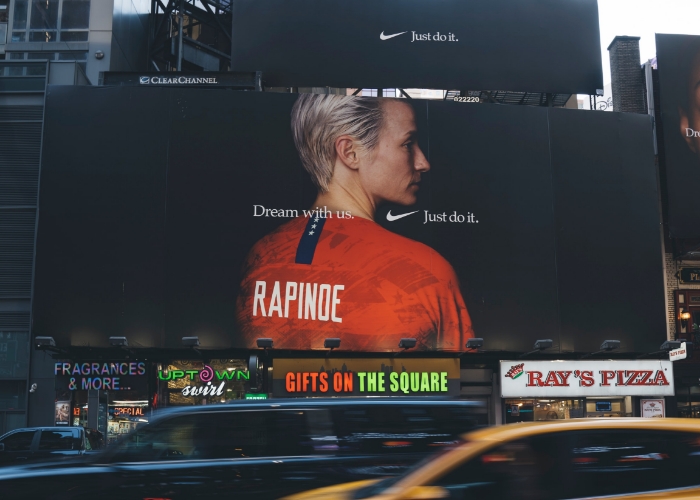Let’s say you have a million-dollar business idea and a perfect product everyone would love. There are hundreds of millions of companies in the world and hundreds of thousands in the same industry. How to stand out from the rest?
A thought-provoking, unique, and captivating tagline or a slogan can enhance the memorability of your brand and influence the purchase habits of customers. It is one of the key steps to a successful business. The one you should never skip.
Where to start?
When creating a representing phrase, the first thing to consider is for whom it will be used? While a tagline may unify the other elements of a brand into a cohesive perception of the company, the slogan is usually given to the advertising campaigns to separate a product or a service from others within and outside the business.
The company and the certain product or service will have differing targeted audiences, so the tagline will be different from the slogan.
If the tagline is what you are after, focus on the values, culture, hopes, and dreams of the business, because the goal of it is to accurately capture the essence of the company. The slogan should convey the meanings relevant to the specific product, service, or ad campaign, so keep that in mind when creating one.
3 features of every outstanding tagline or slogan
Although the intended audience and the use of the two differ, the writing principles are almost the same. Both tagline and slogan must be:
1. Memorable
Maybelline New York’s tagline “Make it happen” looked like a great example of rebranding at the time: a confident and passionate statement instead of “maybe”, directed to the future, and symbolizing the infinite power to act despite the challenges. But the iconic tagline “Maybe she’s born with it, maybe it’s Maybelline”, dropped by the brand in 2016, is still known by many people today. Why?
Notable taglines and slogans are catchy and easy to repeat. Sometimes a brand will choose a short tagline or a slogan in hopes that it will be easier for the consumer to remember a few words instead of 10, yet the memorability factor could also be triggered by linguistic devices, such as alliteration, repetition, and rhyme.
Alliterationrepeats the same letter at the start of every word in the phrase and is pleasing to the eyes and ears of the consumer. Dunkin’ Donuts, Coca-Cola, Chuck E. Cheese’s – each of these names of well-known companies have the element of repetition.
Repetition repeats the same letter at the start of every word in the phrase and is pleasing to the eyes and ears of the consumer. Dunkin’ Donuts, Coca-Cola, Chuck E. Cheese’s – each of these names of well-known companies have the element of repetition. “An apple a day keeps the doctor away” is an example of rhyme, which is proven to make any phrase more memorable. And even if you do not use Yahoo, “Do you… Yahoo!?” will definitely be stuck in your head after reading it a few times.
2. Unique to the brand
If the goal is to help the consumer to differentiate between your brand and others, the slogan has to be original and relevant to the company. It can be achieved by incorporating the unique selling proposition, also known as USP.
A unique selling proposition can be defined as a specific benefit to the customer that makes your business stand out. Maybe your shipping company seeks to deliver the parcel in one day (FedEx “When it absolutely, positively has to be there overnight”). Maybe the make-up you sell excels other brands by durability, easiness to blend, and is marketed for professionals (Max Factor “The make-up of make-up artists”).
Such proposals as 15% off the first purchase, a 100-day return policy, or free shipping are not appropriate USPs because they can be copied by other businesses, and some of them in this day and age are perceived as commons rather than advantages.
3. Meaningful
A good tagline should evoke emotions, memories, tastes, and images in your mind. Not the confusion and intrusive thoughts.
Sports equipment companies around the world followed Nike’s example with inspirational quotes, like Under Armor’s “I will” 2013 campaign. While it is indeed inspirational, it lacks context. You will… what? Will win or will lose? That is why being specific is also important.
“A body for every body”, the tagline of Victoria Secret, not only contradicts itself by excluding different body types than size zero in brand photoshoots but sounds as if the company is positioning itself as a human trafficking business. So, before launching your new campaign, be sure to check the connotations your tagline or slogan could provoke.
There are a few tips that go without saying: a tagline or slogan should be politically correct (unlike Reebok slogan “Cheat on your girlfriend, not on your workout”), should not contain swears, insults, or any kind of offensive phrases, and grammatical or spelling mistakes.

